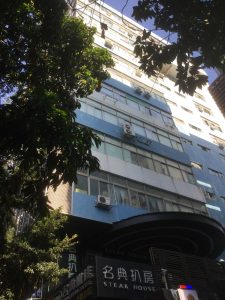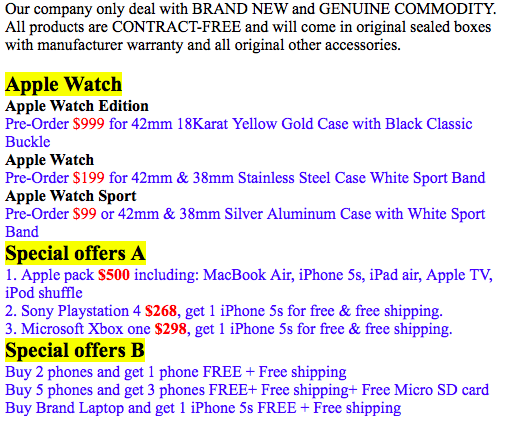 From time to time a client asks us to go and check a supplier that is clearly putting out a scam. We did just this a few days ago, and I am reproducing some elements below (with permission from the client).
From time to time a client asks us to go and check a supplier that is clearly putting out a scam. We did just this a few days ago, and I am reproducing some elements below (with permission from the client).
How does it work?
Here is an extract from the scammer’s email:
Genuine Apple, Sony, or Microsoft products, sold from China directly to European or American customers? Totally illegal.
This case was interesting because we observed the way the scammer operates:
- They send a real sample at the real market price to confirm product quality. This way, the deal looks like a great opportunity to the buyer.
- When the buyer places the order, inspecting the goods is not an option. The seller asks for payment before the delivery is supposed to take place. Then he stops communicating.
- Sometimes the seller does ship the goods. But they are all fake.
In case an angry customer looks for the supplier, the address in the email signature is fake. Here is the address shown in this case:
 Room 2108 means they are at the 21st floor. But, at 122 Zhenxing Rd, the building only has 12 floors. (See photo to the right.)
Room 2108 means they are at the 21st floor. But, at 122 Zhenxing Rd, the building only has 12 floors. (See photo to the right.)
Why was it obviously a scam?
Companies like Apple and Sony have a very tight grip over their supply chain. They have become good at avoiding product “leakage”. Cheap genuine products that “come out of the back door” or “fall off a truck” are very rare occurrences.
Another reason is, selling branded products internationally without an official distributor account in the importing countries is strictly forbidden. So the companies that do this (including those based in China) are operating outside the law.
To avoid this type of scam, focus on developing your own products, buying non branded products, or buying branded products that bear the supplier’s brand.
Importers who do their due diligence and take the right steps toward legal protection usually don’t fall into this trap. Recovering money from a scammer is close to impossible, as I wrote here.


